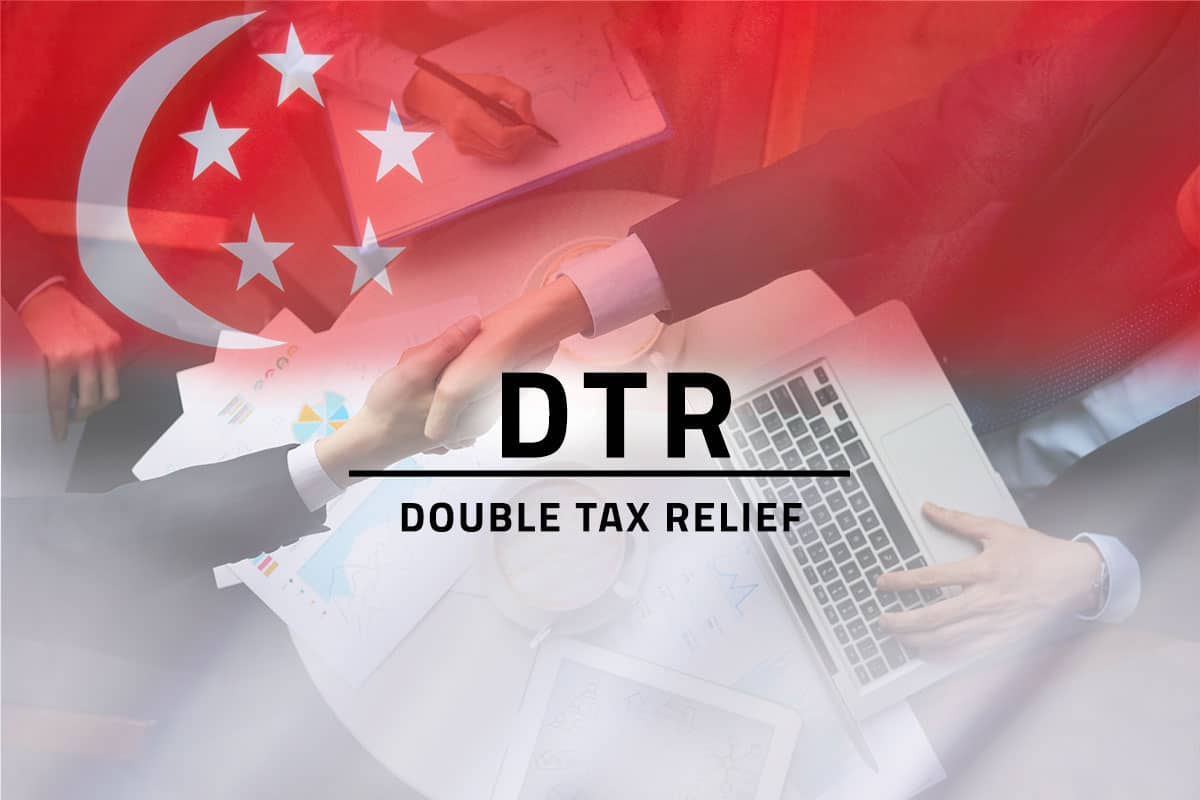Double Taxation occurs when a foreign income earned by a Singapore company is being taxed two times, once in the foreign jurisdiction and twice in Singapore. Double Tax Reliefs are a form of foreign tax credit that can be claimed by tax residents under the Avoidance of Double Taxation Agreement (DTA).

It is mainly applicable to tax residents deriving foreign income from overseas that are repatriated back into Singapore. Income derived from overseas are subject to local taxes in the respective foreign jurisdiction. When the income is brought back to tax in Singapore, Double Tax Relief will be granted should the tax paid overseas fall within the scope of the DTA.
In all cases, as stipulated in the DTA, Singapore companies can claim double tax relief up to the limit between the lower of foreign tax paid and Singapore tax payable. If the Singapore tax payable amounts to SGD30,000 and foreign tax paid is SGD40,000, the maximum double tax relief that can be claimed is SGD30,000. If the foreign tax paid is SGD20,000, the maximum double tax relief granted would be SGD20,000, and tax residents are liable for the balance of SGD10,000 Singapore tax payable.
What is a Double Taxation Agreement (DTA)?
Double Taxation Agreements are documents signed between two countries stipulating the provisions for avoiding double taxation on the same source of income. Every country has their own set of local tax laws, and DTAs between Singapore and other countries may differ in specifics, but general principles apply where income derived are not taxed twice.
Singapore has individually signed 60 comprehensive Double Taxation Agreements with foreign countries over the years. Prominent among these agreements are the following key treaties:
United States- One of the foremost trading partners for Singapore is the United States. While there may be no official DTA in place between the US and Singapore, Singapore companies are able to claim foreign tax credit under the Unilateral Tax Credit scheme. The US has a foreign tax credit scheme in place that essentially eliminates double taxation.
Philippines- Singapore also signed a DTA with the Philippines effective 1st January 1977. Some income sources that are applicable for double tax relief as spelled out in the treaty include: business profits, dividends, directors’ fees, royalties and other foreign income sources.
United Kingdom- The official DTA in place between Singapore and the United Kingdom was signed and enforced with effect from 1st January 1998. The agreement covers most income sources ranging from professional services income to income from immovable property.
Israel- Singapore has a DTA in place with Israel as well, with the agreement being enforced since 1st January 2006. Taxes covered in Singapore’s treaty with Israel include gains from the alienation of movable or immovable property as well as taxes on the total amounts of wages or salaries paid by enterprises.
A comprehensive list of DTAs, Limited Treaties and other arrangements are available for reference on the Inland Revenue Authority of Singapore (IRAS) official website. DTAs and other such tax treaties provide certainty on taxation on foreign-sourced income and prevent international tax evasion.
Withholding Taxes
Withholding taxes are levied on payments to non-resident companies. In Singapore, different withholding tax rates are applied to different types of income. For example, interest paid to a foreign party is subject to 15% withholding tax that must be paid to IRAS. Depending on the DTA in place, the income that is deemed to be earned by the foreign party may claim tax relief on the withholding tax suffered. Likewise, foreign-sourced income being brought to tax in Singapore may be eligible for tax relief on any withholding tax paid to the foreign tax authority.
How to claim DTR
Foreign tax credit of double tax relief can be claimed during the annual tax return filing via Form C submission. IRAS requires the following key information to be disclosed and supporting documents retained:
- Country where foreign tax is settled
- Nature of income, amount, description and name of the payer.
- Withholding tax receipt, and
- Relevant DTA
As globalization and progress in Singapore, a rising proportion of companies are deriving their income from overseas jurisdiction. Comprehensive knowledge and familiarity with double taxation reliefs and international tax treaties are crucial when filing for annual income tax returns. When in doubt, consulting a qualified tax professional will considerably ease your tax filing procedures and ensure no loss in opportunities for claiming double tax reliefs in Singapore.
Related Posts
Tax Guide: Singapore Capital Allowances
By law, all Singapore Companies are required to file annual income tax returns to the…
Quick Guide: IAS 20 – Accounting for Government Grants
This year, the COVID-19 crisis has adversely impacted the global economy. Singapore is no exemption,…
Singapore Guide: ISCA FRB 6 – Accounting for Jobs Support Scheme
This year, the COVID-19 pandemic has inevitably adversely impacted the global economy. Singapore companies and…
Quick Guide: Singapore’s Enhanced Jobs Support Scheme (JSS)
The Singaporean government launched the Jobs Support Scheme (JSS) in late April as part of…












